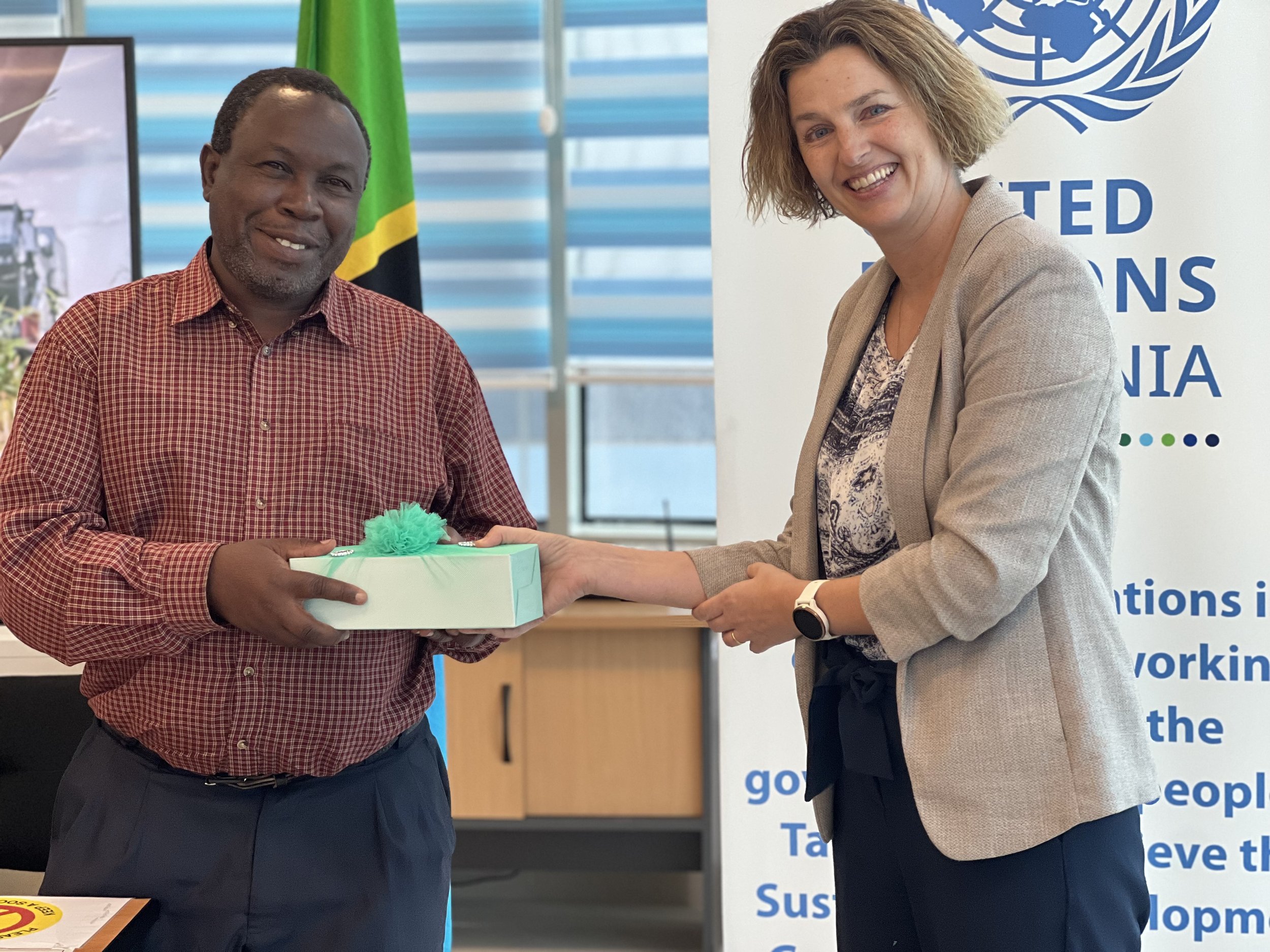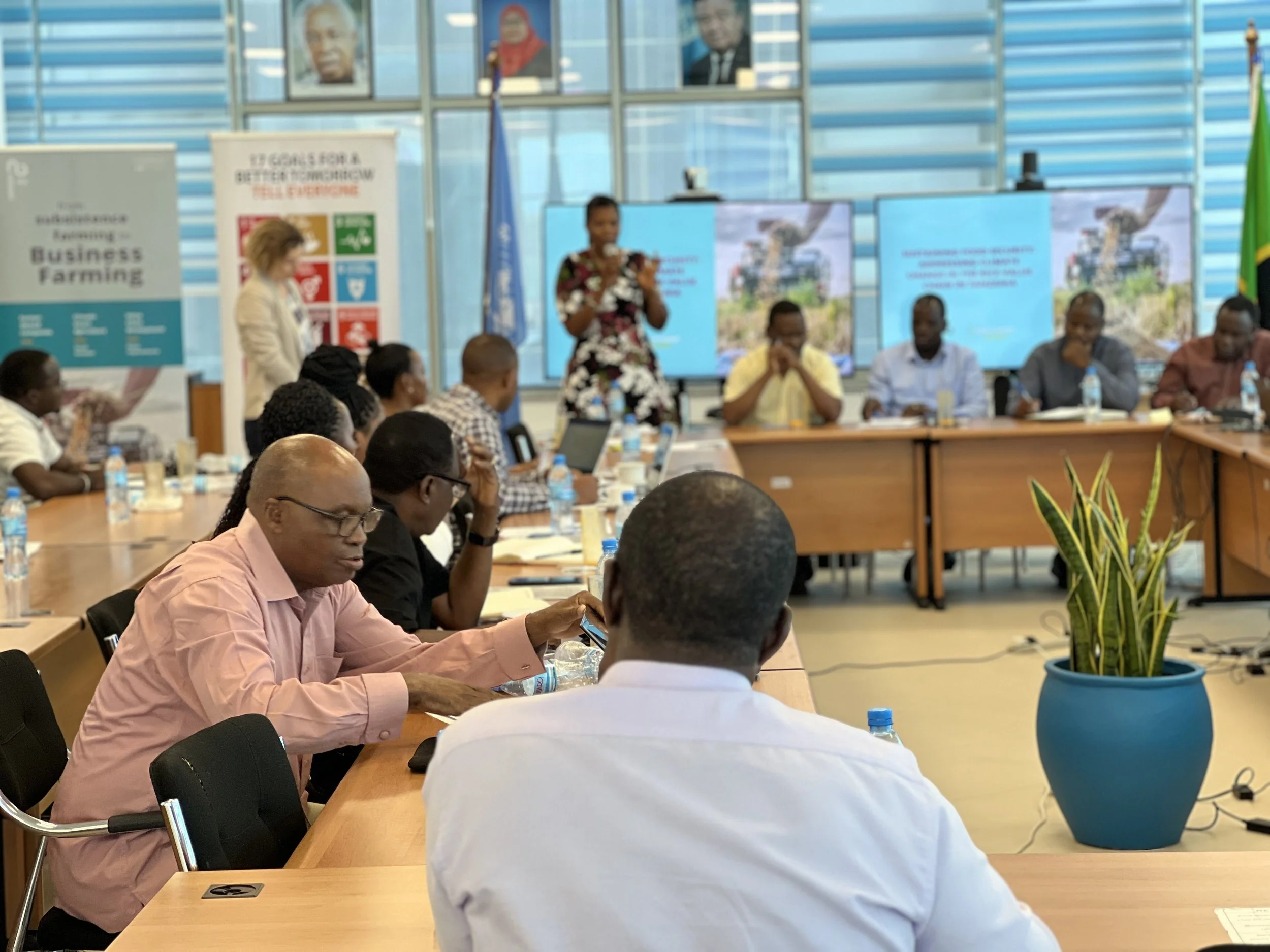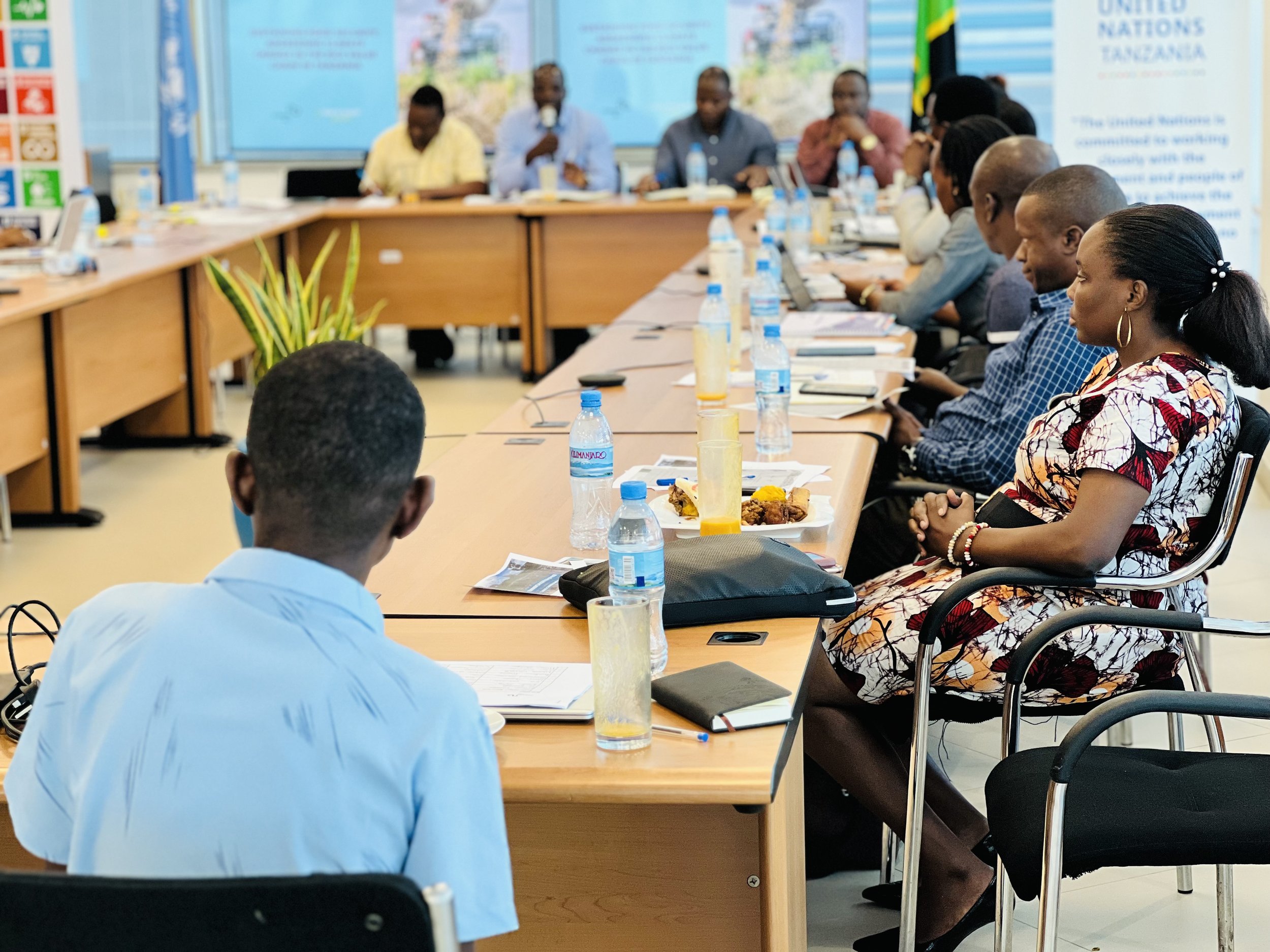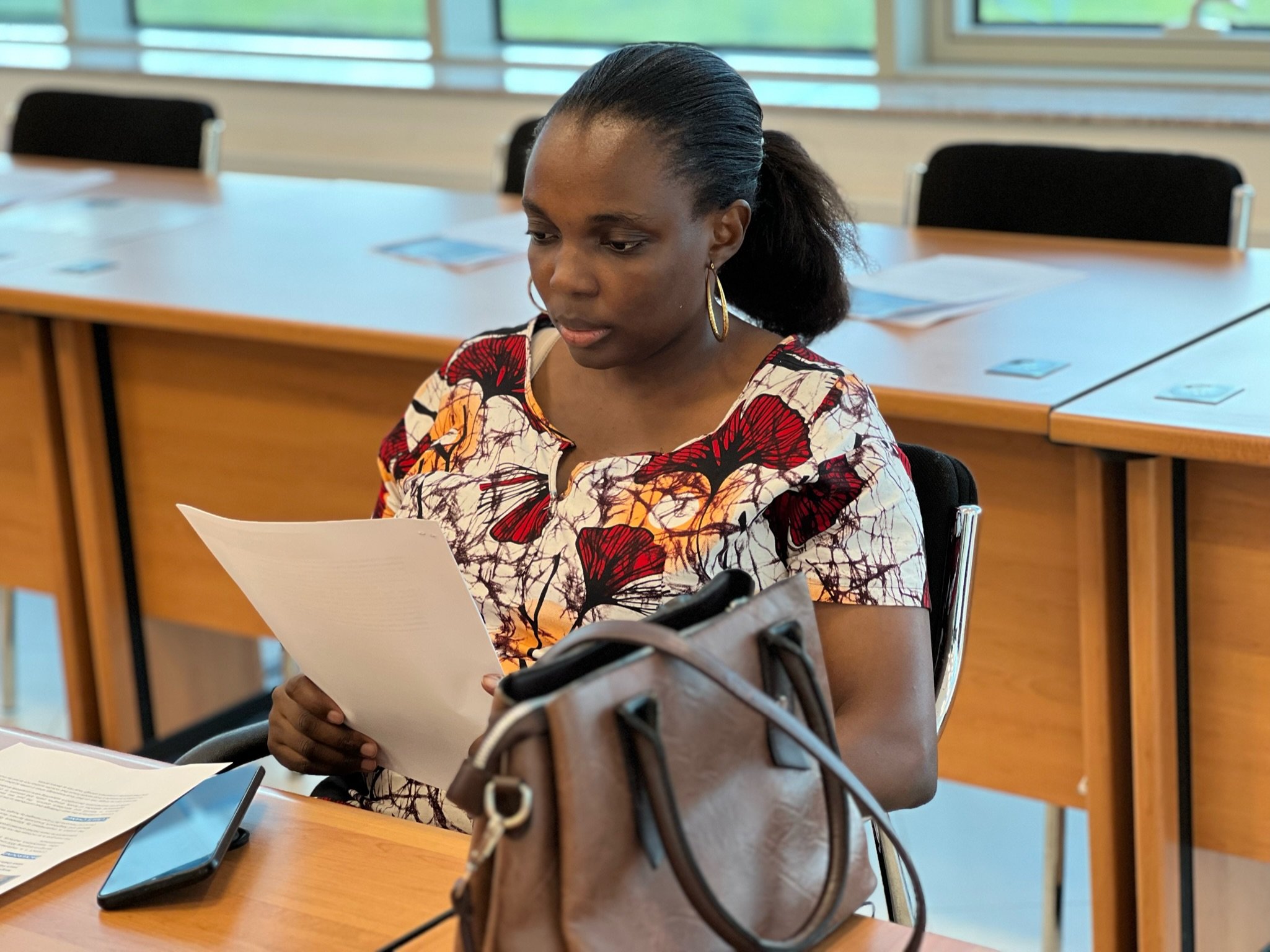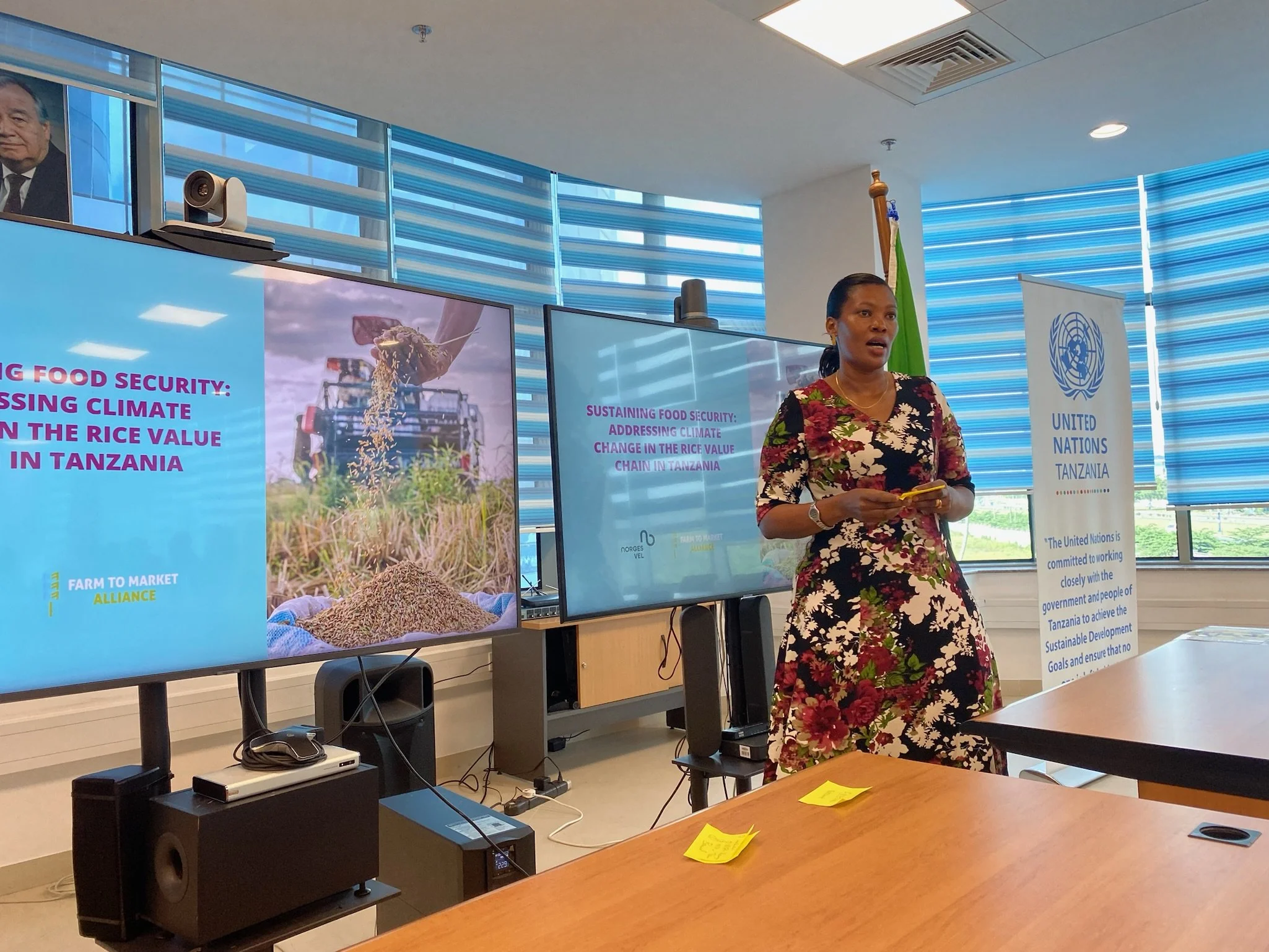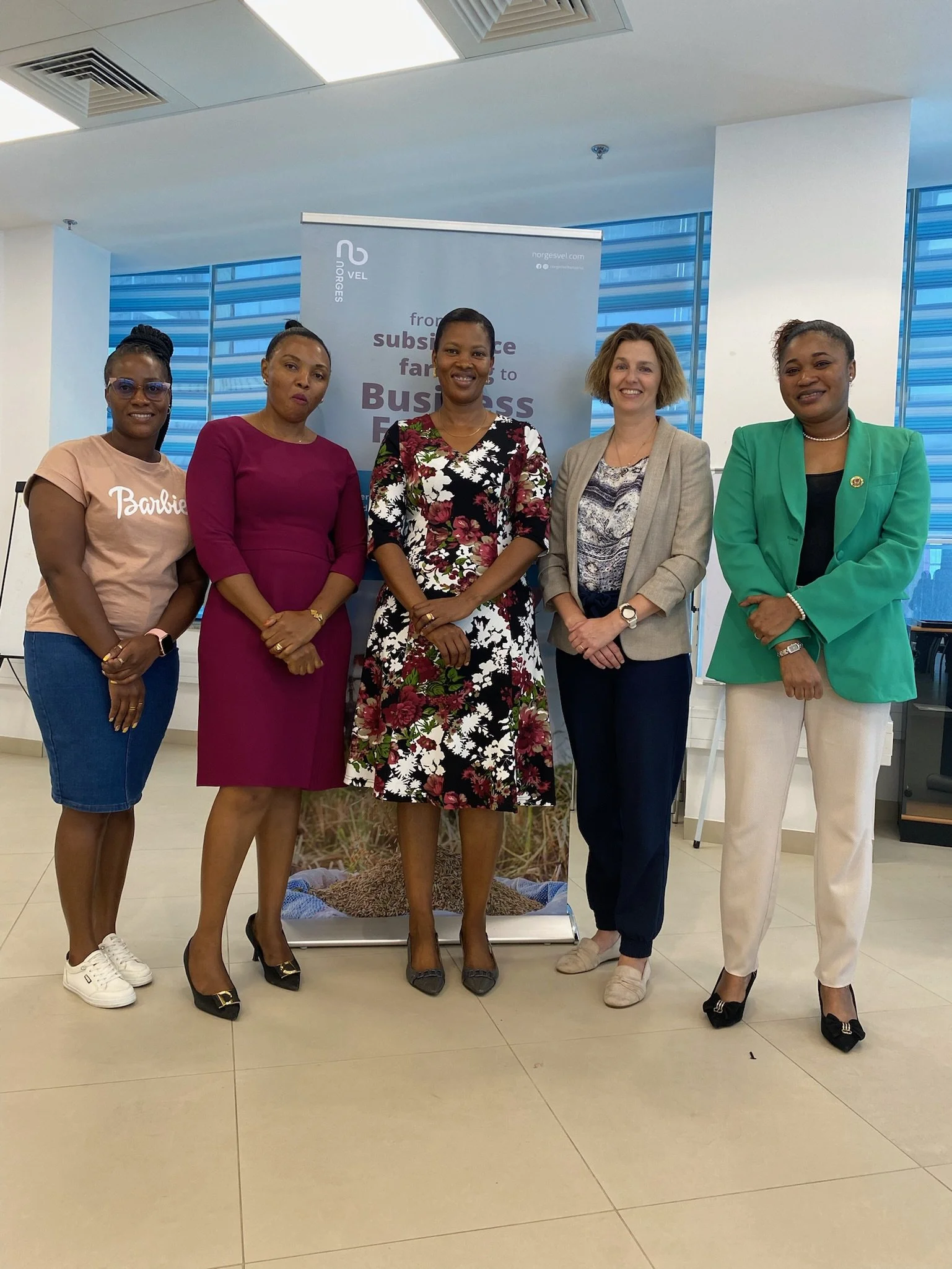Sustaining Food Security in Tanzania’s Rice Value Chain
In collaboration with the Farm to Market Alliance, we organized the event “Sustaining Food Security: Addressing climate change in the rice value chain in Tanzania” on October 27th in Dar es Salaam.
We gathered over 40 participants from 20 organizations that are deeply involved in the rice sector. The learning event aimed at discussing how climate change affects the rice sector and the possible solutions to address the challenges. Notable contributors included the private sector who shared valuable insights, innovations, and solutions to foster climate-smart rice farming.
Presentations from University of Dar es Salaam, Centre for Climate Change studies, Norges Vel Tanzania, International Union for Conservation of Nature (IUCN), Tanzania Agriculture Research Institute (TARI), Farm to Market Alliance (FtMA) and YARA International set the tone for fruitful discussion.
As we believe that collaboration is key for development, we want to share with you the key lessons and action points from the event.
Key lessons.
Climate-resilient Farming Practices
Emphasizing the significance of improved seeds, effective irrigation techniques, and water management for climate change adaptation.Informed Decision-Making
Recognizing the importance of weather forecasts to empower farmers with the knowledge needed for informed agricultural decisions.Long-Term Resilience
Acknowledging the necessity of implementing long-term adaptation measures to enhance overall resilience in the face of climate challenges.Resource Optimization
Highlighting the importance of short-season rice varieties to minimize water usage.Fertilizer Management
Underscoring the critical role of optimal and precise fertilizer application in climate-smart rice farming.Productivity vs Expansion
Encouraging farmers to prioritize increasing productivity over expanding cultivation areas for the benefit of the environment.Innovative Techniques
Recognizing the potential of direct-seeded techniques as a model for adapting to climate-smart rice farming.
Key Action Points
Continuous Learning
Advocating for ongoing knowledge exchange through regular Rice Learning Events in the future.Collaborative Efforts
Stressing the importance of avoiding working in silos and fostering commitment and coordination among partners.Data Accuracy
Highlighting the need for accurate data to inform interventions in the field and exploring collaborative efforts with organizations to enhance data accuracy in rice production.Government Engagement
For sustainability of our interventions, engagement of government extension office is key, how can we engage them effectively?Inclusive Advocacy
Urging rice stakeholders to advocate for special grants for women and youth, recognizing them as crucial partners in the rice value chain.
A huge thank you to all speakers and participants who made this event a success. Your dedication to a sustainable future for Tanzania’s rice sector is truly inspiring.
Let’s not end the conversation here! Keep sharing your insights, experiences, and stories of how you plan to contribute to climate change mitigation and adaptation in your own way. Do you have an idea or a comment you want to share with us? Reach out and stay tuned for more information and events in the future!


